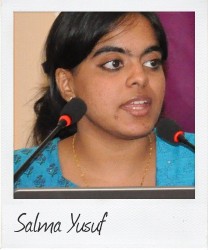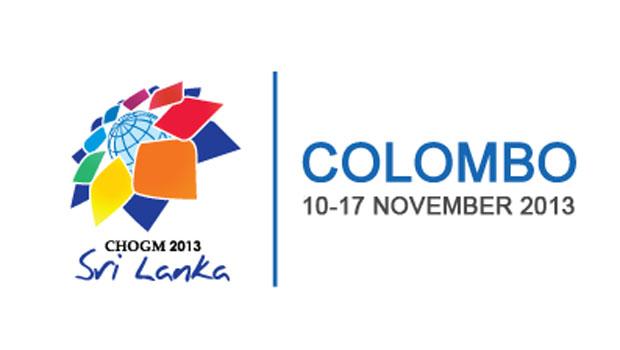"CHOGM will have a Sri Lankan perspective"
November 15 The Commonwealth Heads of Government Meeting is more than a high level round of talks, writes Salma Yusuf, a Commonwealth Correspondent from Sri Lanka. It’s an opportunity to build consensus, and for Sri Lanka to take on a leadership role.
The Commonwealth Heads of Government Meeting is more than a high level round of talks, writes Salma Yusuf, a Commonwealth Correspondent from Sri Lanka. It’s an opportunity to build consensus, and for Sri Lanka to take on a leadership role.
Sri Lanka will take the mantle of leadership of the Commonwealth for the next two years, a position that will follow from the Commonwealth Heads of Government Meeting 2013 (CHOGM).
In practical terms, this means that Sri Lanka will play a representational role, especially in other intergovernmental organizations, for the two-year period until the next CHOGM. Further, Sri Lanka as Chairperson-in-Office could reinforce the Good Offices role of the Commonwealth Secretary-General and contribute to strategic advocacy of Commonwealth positions in high-level international forums.
The word at the Commonwealth is that this year is not only important for Sri Lanka but also for the Commonwealth as well. At a time when the entire world is facing challenges, be they the global economic situation and how it impacts on national economies, political instability or regional security, the Commonwealth continues to play a crucial role by creating partnerships and promoting dialogue. CHOGM 2013 will provide the highest level forum in the Commonwealth community for such dialogue to take place. For the Commonwealth, this is also a historic year as its Charter comes into effect.
CHOGM 2011 held in Perth was a turning point in the history of the Commonwealth in that it crystallized the rising tide of questions on the continued relevance of the Commonwealth in the current globalization and international systems of the 21st century. It was a pivotal time at which Commonwealth Heads of Government agreed on a large number of recommendations made by a ten-member Commonwealth Eminent Persons Group (EPG). The leaders established the group at their summit in Port of Spain in 2009, tasking it with advising the Commonwealth to build a stronger, more resilient and progressive association. The EPG presented its 106 recommendations to Heads of Government in Perth in 2011. Their objective was to ensure that the association remains relevant to the needs of its members in these current times.
Asked how the Commonwealth nations sustain legitimacy and effectiveness given that there exists between the Commonwealth nations more differences than commonalities, Director of Public Affairs and Commonwealth Spokesman, Richard Uku said, “One of the unique features of the Commonwealth is the fact that it operates based on consultation and consensus. Thus, irrespective of whatever divergent views may arise at any given time, members do, through consultation and dialogue, come to a consensus at the end of the day.”
Certain quarters have voiced reservation that a CHOGM is nothing more than a mere “talk-shop” that involves large amounts of money.
“CHOGM is an important forum that brings Commonwealth leaders together every two years. The leaders meet to discuss global and Commonwealth issues, and agree on collective policies and initiatives. These meetings are the principal policy and decision-making forum to guide the strategic direction of the association. They are organised by the host nation in collaboration with the Commonwealth Secretariat,” responded Richard Uku.
“After a formal opening ceremony and a formal Executive Session, the leaders meet privately in a ‘Retreat’ setting. The atmosphere is informal, encouraging a full and frank exchange of views, and decisions are reached by consensus.
“Issues discussed at previous CHOGMS include international peace and security, democracy, climate change, multilateral trade issues, good governance, sustainable development, small states, debt management, education, environment, gender equality, health, human rights, information and communication technology, and youth affairs.”
Turning to the all-important aspect of implementation of CHOGM decisions, I asked the Commonwealth Spokesman whether there exists a mechanism to translate CHOGM 2013 decisions to action that will bring real meaning to the people of the Commonwealth.
His response was frank and decisive.
“Yes, there is a summit communique at the end of each CHOGM, which enumerates all decisions taken,” Uku said.
“This communique is issued and made available to the public immediately as the summit ends. In addition, as the primary intergovernmental agency of the Commonwealth, the Commonwealth Secretariat serves as the body that carries forward a number of the mandates generated and monitors the implementation of decisions taken at each CHOGM.”
As a Sri Lankan, I was keen to hear of the specific benefits for member countries participating in CHOGM and specifically for Sri Lanka as host country.
“Commonwealth leaders come together to discuss matters of mutual interest at CHOGM. Those issues are often issues that have to do with national and global concerns,” Uku responded.
“The Commonwealth Secretariat welcomes the warm hospitality of the Sri Lankan people and the Government of Sri Lanka in hosting this meeting, and is confident that the deliberations of leaders in November will produce outcomes that will be beneficial for the association as a whole, as well as for its constituent member states.”
…………………………………………………………………………………………………
About me: I am a Human Rights Lawyer based in Sri Lanka, and a visiting lecturer in law at University of Northumbria – Regional Campus for Sri Lanka & Maldives, and previously at the University of Colombo.
I serve on both national and international programmes in the fields of law, governance, human rights and transitional justice. I hope to build on my work in policy development, research, advocacy and publishing going forward.
…………………………………………………………………………………………………
Opinions expressed in this article are those of the author and do not necessarily represent the views of the Commonwealth Youth Programme. Articles are published in a spirit of dialogue, respect and understanding. If you disagree, why not submit a response?
To learn more about becoming a Commonwealth Correspondent please visit:
http://www.yourcommonwealth.org/submit-articles/commonwealthcorrespondents/
…………………………………………………………………………………………………




